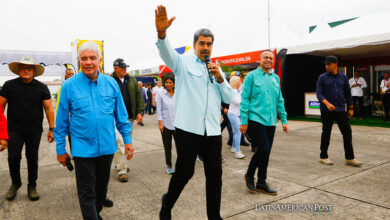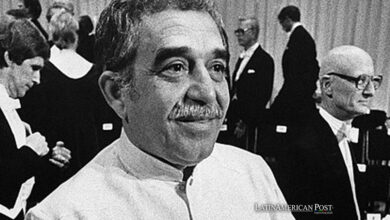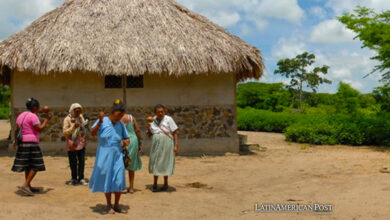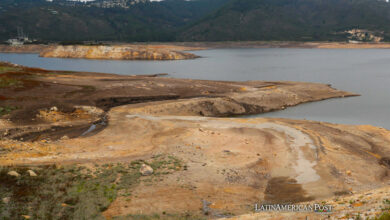The Environmental Proposals of the Candidates for the Presidency of Colombia
LatinAmerican Post brings a recount of the initiatives of the main presidential candidates in Colombia, in relation to the country’s environmental problems

Photo: Freepik
”
LatinAmerican Post | Christopher Ramírez Hernández
On May 29, a new election day will be held in Colombia in order to elect the new president of the country. However, before that, on March 13, the existing coalitions will have to go to some consultations to decide, among their bunch of pre-candidates, who will be the person who will represent them. For this reason, Colombians have been listening to the pre-candidates, in order to know what may be the best voting option. The environmental proposals of the candidates to counteract the ecosystemic and climatic problems that currently afflict Colombia are fundamental for the future of the country.
In the Pacto Histórico
Gustavo Petro, a candidate for the PH, has assured that Colombia must focus on three fundamental concepts: “the impact on life on earth, on local water and local air, and about local life in the territory”.
In that order of ideas, for Petro one of the pillars that would allow the recovery of the environmental balance in Colombia would be to change the country’s development model that is based on fossil fuels. For him it is crucial to “stop exporting coal and oil”, as he communicated in a virtual forum developed by the Futurible organization in 2021. Petro has also claimed to be against the exploitation of gas through fracking, in addition to criticizing the spraying of glyphosate to end illicit crops.
Francia Márquez is one of the candidates with the greatest experience and authority in terms of environmental issues. Her work in defense of water resources such as the rivers that cross the Municipality of Suárez, in Cauca, and the rejection of mining, both legal and illegal, made her worthy of The Goldman Environmental Prize 2018, considered the Nobel Prize of environmental issues.
For this environmental leader, the biggest change Colombia should have is one that directly involves the country’s economic system. The economy must focus on processes that put life above all else, both human life and that of the rest of the planet’s biodiversity. For this reason, in summary, Márquez supports two key points: independence from extractivism and strengthening of agroecological production, this in order to improve the management of natural resources from and for the communities, and incidentally reduce the impact of hydrocarbons.
Also read: Climate Change in Latin America: It’s Worse Than We Thought
In the Centro Esperanza Coalition
This year, Sergio Fajardo is one of the candidates with one of the most robust environmental proposals. His government plan covers issues such as the increase in renewable energy generation, a commitment to greater use of solar energy, the creation of the National Center for the Fight against Climate Change, the reduction of deforestation by at least 50% and the protection of water sources, especially the paramos. Nor does it support the use of glyphosate or fracking.
For his part, Juan Manuel Galán has pointed out, in various debates, such as the one organized by El Espectador, that he opposes fracking and that it is necessary to fight drug trafficking and crime to stop mining illegal, land dispossession and deforestation. Jorge Enrique Robledo, another of the candidates for the consultation, also pointed out that mining should be used but with strict processes that protect the environment.
On the Conservatism
On the right side is the Equipo por Colombia, and among its strongest leaders is the former mayor of Bogotá Enrique Peñalosa. Although it is not one of the issues on which he presents major arguments, Peñalosa has spoken about some points related to the environmental problem in Colombia. In a forum developed by several important organizations in the country, the politician assured that rather than ending, for example, mining or restructuring it, one of his proposals is to improve the infrastructure to better exploit this economic sector.
Contrary to the other candidates named above, Peñalosa does support fumigation with glyphosate, as well as fracking (studying it “in a very scientific way” and taking “measures in an environmentally responsible manner”). However, he sees it as an option, because, as he indicated on his Twitter account, “we have to take into account the poverty in which many of our inhabitants are and think about them.”
Óscar Iván Zuluaga, candidate for the Centro Democrático, party of the current president: Iván Duque. Although the “uribista” candidate has not explicitly shared the environmental proposals with which he would govern in the event of winning the Presidency (his best example appears on his website and he only indicates a promise that he will take care of the environment), in LatinAmerican Post we will cite some of the initiatives that he promoted during his campaign in 2014, when he lost against former President Juan Manuel Santos: an end to illegal mining, forest development (maintenance, recovery and massive planting of trees) and the creation of a Ministry of Sustainable Development that deals with issues such as caring for water, housing and the environment.
However, these are proposals from almost ten years ago, so it is unknown whether they are valid or not in his current government plan. What is known is that he supports aerial fumigation with glyphosate as a central policy to eradicate illicit crops, as well as “responsible” fracking.
With the global emergency situation due to the impact of climate change, it is essential to know in depth the environmental proposals of the presidential candidates to make a good choice of who will have in their hands the power to implement public policies to protect the development of the country.




